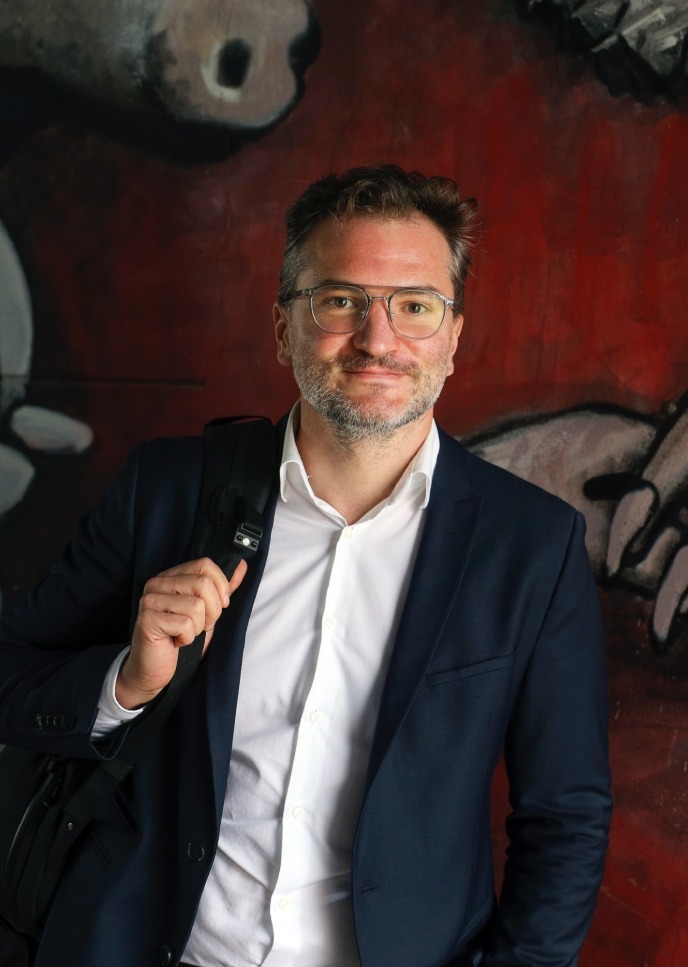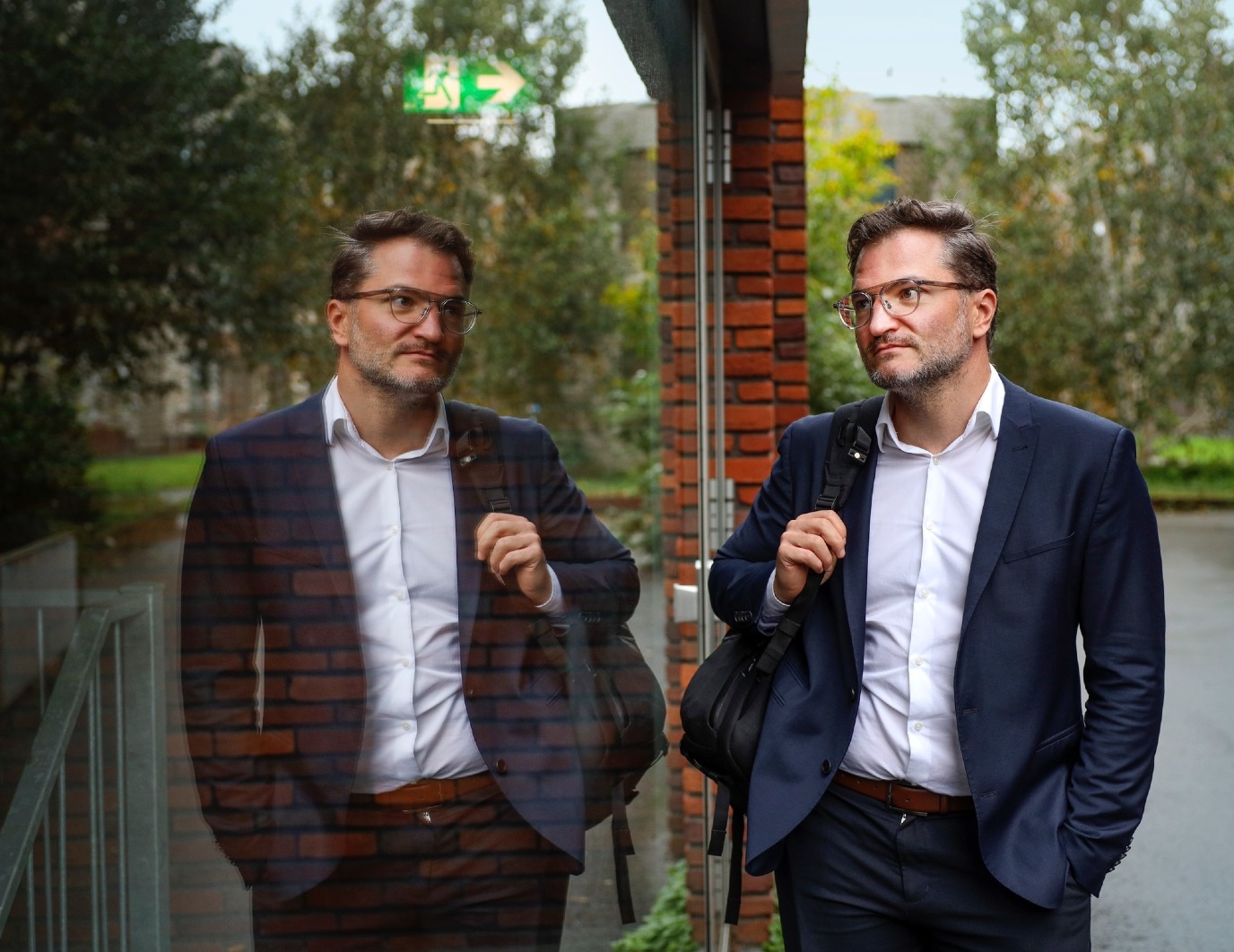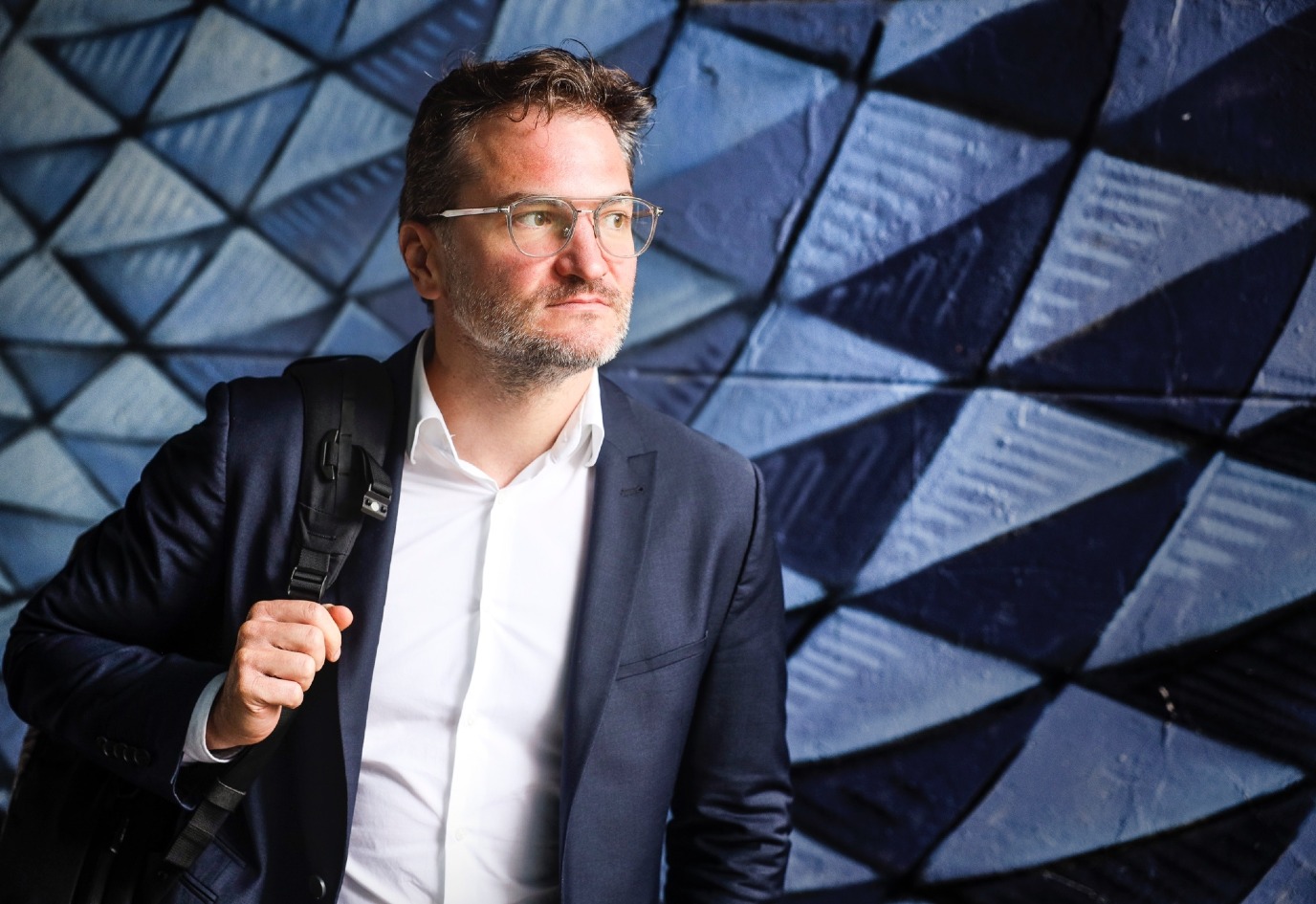‘Our core values must be prioritized when making digital choices’

The EU wants to better arm itself against the improper use of data by large, mostly American, tech companies. To this end, regulations are being drafted and money is being invested in European projects such as the recently announced AI Factory in Groningen. In this way, the EU wants to invest in data storage and the development of digital infrastructures within its own borders. The UG is committed to having full control by 2030 over who has access to our data, which systems are used to process it, and under what conditions this is done. An interdisciplinary working group is currently mapping out what needs to happen to make this possible.
Text: Jaap Ploeger, Corporate Communication / Photos: Henk Veenstra
The University wants privacy, transparency, openness, and academic freedom to take priority in the use of data and its digital infrastructure, and it is fully committed to this goal. ‘As far as I know, we are the only university taking this specific stance at present,’ says ‘Data Autonomy’ coordinator and associate professor Oskar Gstrein. He explains where we are right now and why we as the UG need to become more autonomous when it comes to our digital infrastructure. ‘Data and digital infrastructure always determine how the UG performs its core tasks as a university,’ Gstrein begins. ‘Teaching, research, and business operations have become largely dependent on what can be done with data.’
UG staff members use Google Workspace for their daily work. The learning management environment for students and lecturers, Brightspace, runs on Amazon Web Services for reasons of scalability — after the summer break, all students log in en masse. Research papers are published in the Pure programme. This was once the brainchild of a small Danish start-up, and is now part of Elsevier, one of the largest publishing companies in the world. If you look at our work through this lens, it becomes clear that we are helpless without the largely American Big Tech companies.
Walled gardens
Gstrein: ‘We have made ourselves completely dependent on these companies. And we have done so for reasons of efficiency, ease of use, and cost considerations. Over the past 10 to 15 years, the entire world has moved to the Cloud, so the University had to follow suit. It is easier to work with existing parties than to set everything up ourselves.’
Almost all the services we use in our daily work are integrated: think of Google Mail, Google Drive, and Google Meet. The systems we use are now actually ‘walled gardens’, he explains. The tech companies ensure that you can no longer do without their services, but also that everything works together very effectively.

Where it becomes problematic
Gstrein: ‘It is important to realize that what we do as an institution is very much driven by what these tech companies want. We are now in a situation where our information and data have become part of a digital ecosystem. In this ecosystem, our work contributes to something it was not intended for. ‘Purpose limitation’, meaning the use of data for the purposes for which you have given permission, is being compromised. This leads to loss of autonomy and independence.’
Tech companies want to use the high-quality data published by scientists (Elsevier), or information that appears on LinkedIn (Microsoft), as input. They use this data to train their AI models, such as large language models (LLM) or general-purpose AI (GPAI), such as ChatGPT.
Gstrein: ‘You enter a dimension where you no longer have control over the usage of your data. But the way we teach is also defined by Brightspace and the templates the platform offers, and what you can or cannot do with them. The way scientific work is published depends on what Pure and Elsevier choose to make visible. And Google determines our daily workflow.’
Core values at stake
The UG must strike a balance between ease of use and control over data and digital infrastructure. Gstrein: ‘We must also understand that academic freedom and freedom of speech are at risk when autocratic leaders interfere with digitization and Big Tech dance to their tune. Because the US government is now imposing requirements on companies for reasons of national security and wants to give AI free rein without restrictions, the UG needs to have a plan of action to end its dependence.
Gstrein: ‘The question now is: Where do we want to place control over our data? Within the UG, within the Netherlands, or at European level? The problem is that you can come up with lots of ideas, rules, and policies, but in the end, someone has to do it. A party has to develop it and bring it to market. Who is going to do it? There has to be a government policy that states: central public services are switching to digital infrastructure that we can manage ourselves.’

Value-driven digital infrastructure
According to Gstrein, it is simply too expensive or organizationally difficult to manage everything ourselves. It is not realistic for the UG or, for example, SURF (ICT cooperative of Dutch education and research institutions) to set up a digital infrastructure entirely under their own management. Gstrein: ‘The UG needs a way to transition to a value-driven digital infrastructure. Where possible, we should try to set up our own infrastructure and become more independent. This is best done in collaboration with other universities. That will give us a better negotiating position with tech companies.’
‘Ultimately, this path will lead to more open standards and open source solutions, such as documents that can be opened in all common software. We only want to work with companies that share our core values. If your values as a public knowledge institution are compromised by the use of certain services, you should be able to switch easily. That is how you get out of that walled garden,’ he says.
Roadmap 2030
Within the UG, an interdisciplinary group is working on drawing up a roadmap that should lead to a digitally autonomous university by 2030. Gstrein is working with colleagues to decide on the best approach: ‘A university is a good place to discuss such matters. Certainly within a broad university such as the UG, you can consider this challenge from different angles. If we take the threat seriously, we must also take joint action.'
‘It is wonderful that the Board of the University of Groningen is recognizing the importance of this,’ says Gstrein. ‘The task facing the working group is clear. We start by mapping out our digital infrastructure. In which areas are we dependent? Where and how is our data stored, and what happens to it? What should be included in a value-driven digital ecosystem? These are the questions we will be working on in the coming months. Our conviction that we must do this according to our own vision and values should be enough to alleviate any discomfort associated with the transition.’
More news
-
07 July 2025
The darker side of tourism
